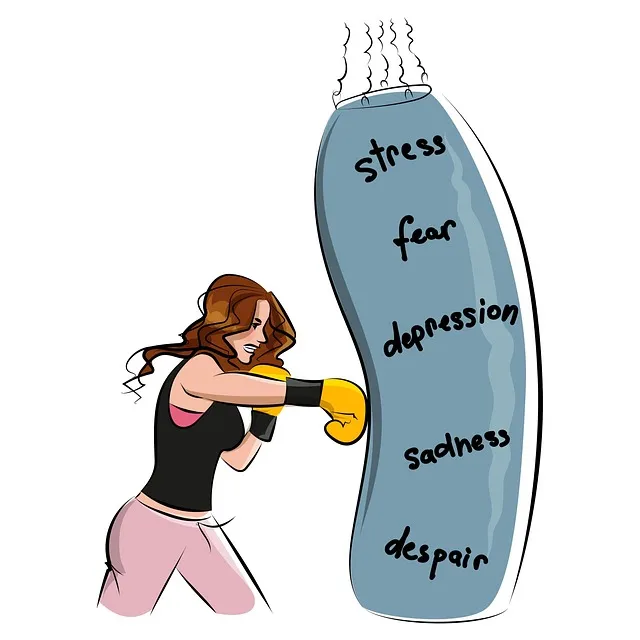Wheat Ridge Kaiser Permanente behavioral health services lead in accessible, effective mental wellness coaching by integrating evidence-based practices and emotional intelligence training. Their holistic approach combines individual therapy, group support, mindfulness, and creative therapies to build resilience and life balance. Success is measured through structured evaluations, goal-setting, and client feedback, ensuring tailored interventions for optimal mental wellness outcomes.
Mental wellness coaching programs are gaining prominence as essential tools for promoting holistic well-being. This article explores the development of such programs, focusing on various facets from understanding the growing need to measuring success. We delve into designing effective coaching models, integrating best practices from Wheat Ridge Kaiser Permanente behavioral health services, engaging clients, and continuous improvement strategies. By examining these key areas, we aim to highlight how comprehensive mental wellness coaching can positively impact individuals’ lives.
- Understanding the Need for Mental Wellness Coaching Programs
- Designing Effective Coaching Models and Curricula
- Integrating Wheat Ridge Kaiser Permanente Behavioral Health Services
- Strategies for Engaging and Retaining Clients
- Measuring Success: Evaluation and Continuous Improvement
Understanding the Need for Mental Wellness Coaching Programs

In today’s fast-paced world, mental wellness is an increasingly important aspect of overall health and well-being. The demand for accessible and effective support has led to a growing recognition of the need for specialized coaching programs. Organizations like Wheat Ridge Kaiser Permanente behavioral health services have been at the forefront of this movement, offering valuable resources to their communities.
The integration of mental wellness coaching programs is crucial in addressing the complex interplay between emotional well-being, social interactions, and overall life satisfaction. By focusing on Mental Health Awareness and promoting Emotional Intelligence, these programs empower individuals to navigate life’s challenges more effectively. Furthermore, Social Skills Training becomes an integral part of fostering healthier relationships and enhancing one’s ability to connect with others, ultimately contributing to a more robust support network and improved mental resilience.
Designing Effective Coaching Models and Curricula

When designing effective coaching models and curricula, mental wellness programs should draw from evidence-based practices. Integrating services like those offered by Wheat Ridge Kaiser Permanente behavioral health services can provide a solid framework. These services often incorporate risk assessment for mental health professionals to identify potential issues early on, which is crucial for preventing escalation.
Curricula should focus on building essential skills such as emotional intelligence and confidence boosting. By fostering these competencies, coaches empower individuals to navigate challenges more effectively. This holistic approach ensures that the coaching program is not just reactive but also proactive in promoting mental wellness, mirroring the comprehensive care offered by Wheat Ridge Kaiser Permanente behavioral health services.
Integrating Wheat Ridge Kaiser Permanente Behavioral Health Services

Wheat Ridge Kaiser Permanente Behavioral Health Services offer a comprehensive approach to mental wellness coaching, integrating various evidence-based practices. These services recognize that emotional well-being is integral to overall health and focus on nurturing inner strength development. By combining individual therapy with group support, they create an environment conducive to personal growth and self-discovery. The team of experts guides individuals through techniques like mindfulness meditation and emotional regulation strategies to enhance coping mechanisms and promote resilience.
This holistic integration ensures that clients receive tailored care, addressing both their mental health needs and personal development goals. Through these services, individuals can gain the tools and insights needed to navigate life’s challenges, fostering a sense of balance and improved quality of life.
Strategies for Engaging and Retaining Clients

Engaging and retaining clients is a pivotal aspect of successful mental wellness coaching programs, particularly within the context of Wheat Ridge Kaiser Permanente behavioral health services. One effective strategy involves personalizing each client’s experience, tailoring interventions to their unique needs and preferences. This might include incorporating creative approaches such as art therapy or mindfulness exercises, ensuring sessions align with clients’ schedules, and fostering an environment where they feel safe to express themselves openly.
Building strong therapeutic alliances is another key factor for retention. Coaches should demonstrate active listening, empathy, and genuine interest in their clients’ well-being. Providing regular feedback, celebrating milestones, and offering ongoing support through various communication channels—including post-session check-ins or group support forums—can strengthen this bond. Additionally, integrating crisis intervention guidance and anxiety relief techniques into the coaching framework can empower clients to manage challenges effectively, thereby enhancing their satisfaction and commitment to the program.
Measuring Success: Evaluation and Continuous Improvement

Measuring success is a critical component of any mental wellness coaching program. Similar to how Wheat Ridge Kaiser Permanente behavioral health services assess progress, coaches should implement structured evaluation methods to track client improvements. This involves setting clear goals and using quantitative and qualitative data to gauge outcomes. By regularly reviewing progress notes, conducting pre-post assessments, and gathering feedback from clients, coaches can identify what’s working and make necessary adjustments.
Continuous improvement is the key to enhancing program effectiveness. Just as Self-Care Routine Development for Better Mental Health and Emotional Intelligence techniques promote emotional well-being, coaching programs should evolve based on client needs and emerging research. Regularly reviewing evaluation data allows coaches to tailor interventions, ensuring they remain relevant and impactful. This iterative process fosters better outcomes and strengthens the overall mental wellness coaching experience.
Mental wellness coaching programs are evolving to meet the growing demand for accessible, personalized support. By integrating best practices from organizations like Wheat Ridge Kaiser Permanente Behavioral Health Services, we can design effective curricula and engage clients through innovative strategies. Continuous evaluation ensures these programs remain impactful and adaptable to the changing mental health landscape. This collaborative approach fosters better outcomes and enhances overall well-being.




